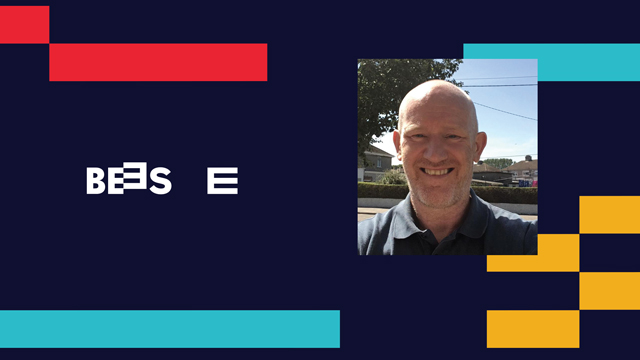Interview with Edward May
Edward May is a teacher at the British Council school of Pozuelo, Madrid. He collaborated pro bono as a proofreader of our Guidebook titled ‘Pro Bono at European Universities’. In this interview, Edward talked about his experience as a pro bono collaborator of the BEESE Pro Bono Project.

Could you introduce yourself and would you share a little bit about your background?
My name is Edward May. I’ve been an English teacher for 15 years and a number of years ago was trained as a proofreader.
Why did you decide to collaborate as proofreader of the guidebook Pro Bono at European Universities?
A friend at work asked me to get involved in the project. When I saw what it dealt with I was very happy to collaborate as I believe that the aims and values of the BEESE project deserve to be supported. Proofreading and using my skills was a practical way for me to do this.
Did you know about pro bono before or did you have any experience as a pro bono volunteer?
I had briefly heard of pro bono previously but hadn’t realised how far it extended. I imagined it being more a North American venture and scheme rather than European and was surprised at its growing scope and influence here in Europe.
What was the biggest challenge faced during the proofreading?
I had to standardise spelling, terminology and grammar items at times. While this and of itself was not a problem, some of the technical language around this subject was a little challenging. Not having been exposed to this previously, I had to try to make sure that the original meaning was kept intact and that I didn’t distort the ideas contained in the text.
How do you value the whole experience?
I enjoyed the experience a great deal. As mentioned earlier, I had no idea of the scope of pro bono in Europe and it was refreshing to read that it’s something that is gaining force. I think it is a wholly worthy project as it encourages the practical applications of one’s skills to help others.
As a high school teacher, do you think students should donate their skills for the nonprofits of their communities?
I think that students should be encouraged to donate their skills to nonprofits in their communities. Doing this will support these organisations to reach out to people who may be vulnerable or not always in a position to practically help themselves. Additionally, by giving their time, young people can enrich their own skills and experiences and develop empathy for those who may be less fortunate than they are. It also promotes greater community cohesion which benefits everyone involved.
I liked the idea of using a specialism that I had. Matching people with their skillset is the best way to utilise volunteers’ time effectively; doing this I think is a good way to give a flavour of a project and supporting individuals in making more meaningful contributions.
Thank you Eddie for this interview. We are very thankful for your great work! Soon all people interested in pro bono will have free access to our Guidebook. Stay tuned!
